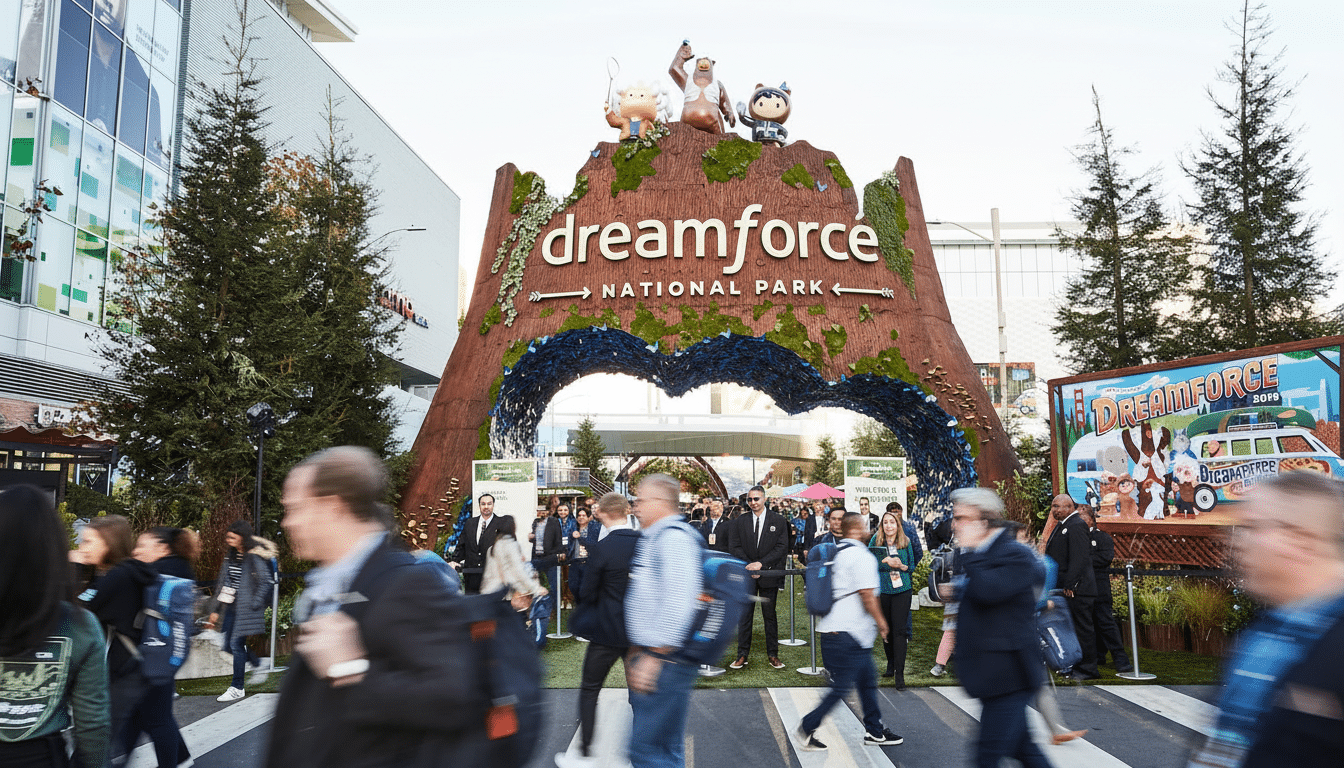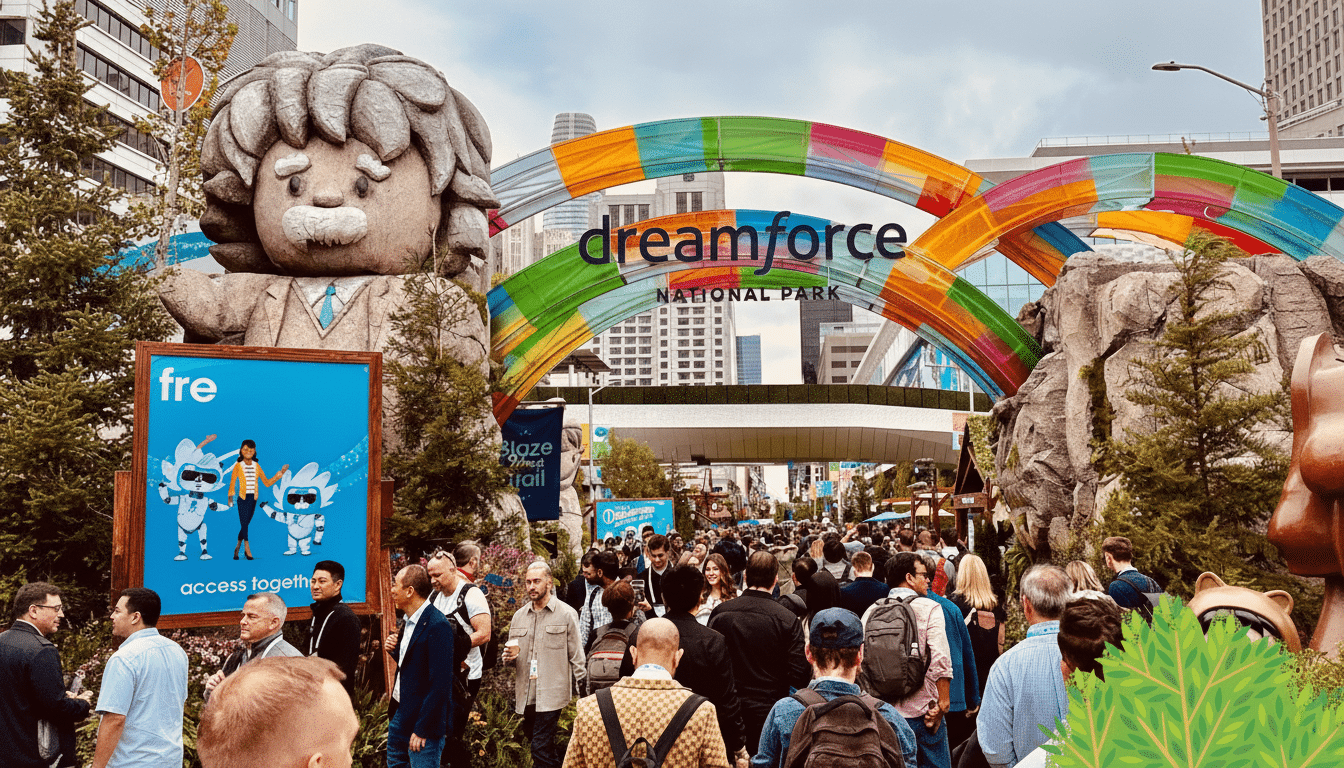Salesforce chief executive Marc Benioff has apologized for saying San Francisco needed National Guard troops patrolling its streets, walking back an incendiary remark that stoked a political and civic firestorm in the software giant’s hometown.
On X, after hearing from residents and local leaders, Benioff wrote in a post that he no longer thinks a military-style response is the right one. He described his previous stance as one of caution around the company’s sprawling Dreamforce conference, which brings tens of thousands to the city and attracts significant global attention.

The apology and the setting behind Benioff’s remarks
Benioff’s reversal comes after an interview in which he expressed support for threats to send the National Guard to Democratic-led cities, including San Francisco. The stance was a striking departure from his long-cultivated profile as a civic-minded executive with progressive bona fides, and it unnerved allies who have collaborated with Salesforce on homelessness services, public schools, and workforce development.
By directly linking his concerns to Dreamforce, Benioff laid bare the tension that large events can create for municipal leaders. Dreamforce is one of San Francisco’s largest annual conventions; industry groups have estimated the direct economic impact in recent years at around $80 million to $90 million, with citywide hotel occupancy and restaurant revenue rising along with it during the week. The visibility of the event also amplifies concerns about safety, cleanliness, and public order in the heart of a major city.
Backlash from allies and officials across San Francisco
The response to the Guard comment was swift. Philanthropist and venture capitalist Ron Conway stepped down from the board of the Salesforce Foundation, he told associates who spoke on condition of anonymity, in a message explaining that “I hardly recognize this leader,” he had long admired. Local officials also pushed back, calling for a correction, contending that sending the troops would erode trust among communities and undermine strategies already in place to ensure public safety.
State and city leaders said that San Francisco’s safety problems — visible street disorder, fentanyl overdoses, and pockets of property crime — are real but best handled with more-coordinated policing, treatment, and housing, not a military occupation. Welcoming Benioff’s reversal and noting the executive’s previous contributions to city initiatives, State Senator Scott Wiener made comments reported by Politico.
What the numbers tell us about safety in San Francisco
San Francisco Police Department data shows that property crimes accounted for the majority of activity, with violent crime totals fluctuating year to year. Some categories have witnessed significant decreases in the city after hitting pandemic-era peaks in recent weeks, even as high-profile incidents and viral videos help mold perception. Although sentiment about safety generally lags underlying data, particularly when downtown foot traffic and office occupancy remain in a state of normalization, both analysts at the Controller’s Office and external criminologists warn that New York has received no such pass.

Perceptions at conventions can matter a lot. Safety repeatedly ranks among the top factors travelers consider when booking vacations, according to surveys by tourism and hospitality groups. In this environment, corporate leaders occasionally overcorrect with bellicose words. But public safety experts say that talk of patrols by military guards can prevent as many visitors from coming as it does to reassure them, making the very notion of instability take priority over one of competence.
Implications for Salesforce and city relations
Benioff’s apology tries to find a balance in scale: It defends the huge global trade show while insisting that a city government can still be trusted. Salesforce has poured money — from philanthropic donations to partnerships on job training — into San Francisco’s civic fabric. That history provides the company with unusual power — and responsibility, some would argue — when it involves itself in policing and public order.
The episode also reflects a broader tech-industry recalibration on urban policy. Executives are speaking out more about street-level conditions, but a blunt security prescription can sometimes clash with evidence-based strategies that emphasize targeted enforcement, access to treatment, and housing. In reality, the cities that have had the most success in reviving downtowns combine a visible police presence, environmental design, and steady services rather than episodic crackdowns.
Where the debate goes next for Salesforce and the city
With Dreamforce done and no big news of bad happenings, Benioff’s letter effectively reboots the conversation. And it calls for revived partnerships with city agencies, merchant organizations, and neighborhood stakeholders around pragmatic steps — more coordinated deployments of officers and ambassadors, cleanliness corridors timed to event calendars, continuing investments in treatment and housing capacity.
Corporate pressure will continue to influence the discussion, but the weekend pivot underscores a simple lesson: lasting safety gains are achieved with thoughtful local work — not military theater. By rediscovering that approach, Salesforce can preserve its impact while adhering to strategies that data and frontline workers alike say prove most effective.

